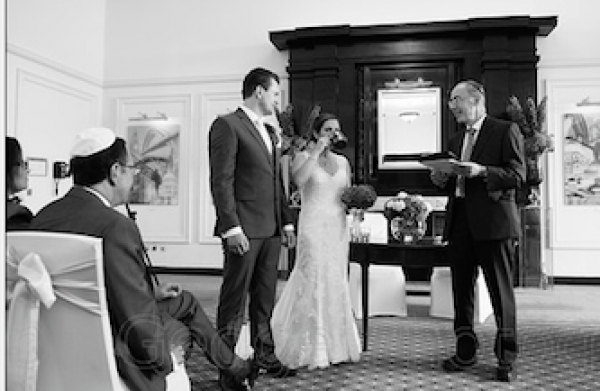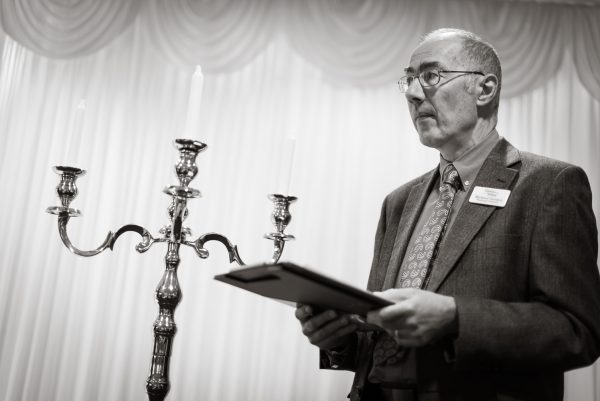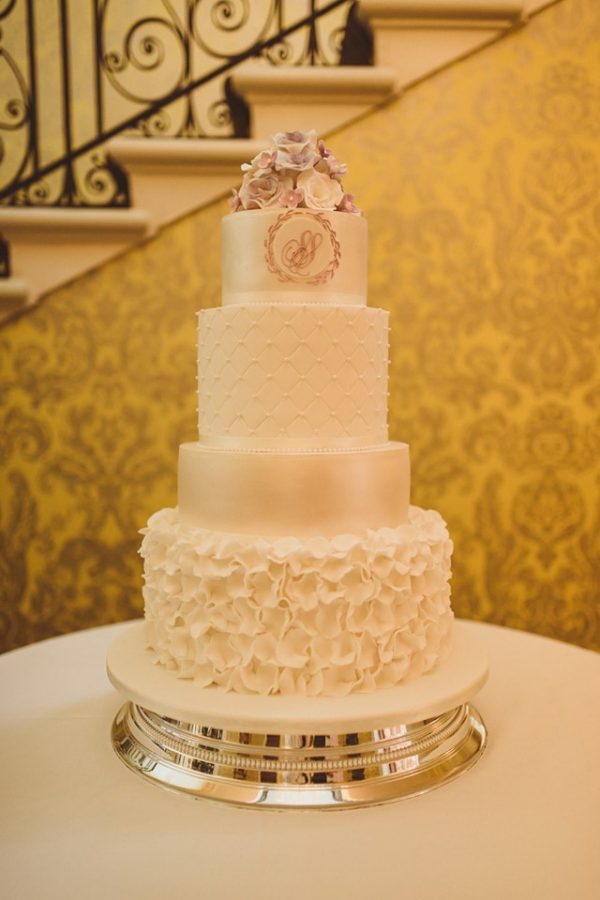
by Michael | Jul 13, 2020 | Blog
Mixed-faith ceremonies had seemed to be getting more popular – until Coronavirus struck. Since March, I’ve had far fewer enquiries (and pre-booked ceremonies have almost all been postponed).
However, eventually people are going to want to marry once more, even if the ceremony and/or reception may be affected by restrictions.
That’s one issue – the other can be the cross-cultural question.
Challenges
If you opt for a mixed-faith ceremony, there is much to consider. You and your partner have to decide what proportion of religious elements you will be including in your ceremony. And whether the share will be equally distributed. And what will you choose?
What about your families? Do they approve? If not, can you get them on side?
They may appreciate it, if you include a prayer or ritual that means a lot to them. Or if you invite them to participate in the service. The father can still walk the bride down the aisle (even if the aisle isn’t actually in a religious building).
It can be difficult, if your relatives’ views don’t correspond to yours (especially if they are footing much of the bill!). The bottom line is that it is your wedding, and you should not be bullied into complying with other people’s wishes. (But it’s still better to seek compromise!)
Your celebrant will be able to advise you, but start thinking about these issues before talking to him.
Indeed, you will also need to discuss with your partner the role religion will play in your later lives. More importantly, if children are a possibility, how will you bring them up?
Advantages
Learning about your partner’s customs and traditions will help you create a meaningful wedding ceremony – and guide you in your future spiritual life together.
You will be able to work with your celebrant to agree on a service that is in accordance with your beliefs and desires. You can then include customs and traditional rituals from either religion, as you choose.
As a couple, you can also select readings relevant to you and which underline your mutual love and willingness to make a commitment to each other. These personalised readings can lift the occasion far above the mundane. The sincerity and joy of a personalised ceremony will shine through and contribute to your guests’ delight, as well as to your own.
Compromise
A middle path can possibly be reached in this way: suggest to your parents that grandchildren will be taught about their religious background (even if you may not actively practise). Offer visits at certain religious holidays, and let your parents know that they will be able – and welcome – to play a part in their grandchildren’s lives.
You can only do so much, but – whatever the outcome – you’ll be glad you did all you could. Just imagine how a beautiful mixed-faith wedding may actually bring the families together and pave the way to harmony!
Isn’t that worth a little discomfort?
Michael has conducted many mixed-faith ceremonies, and will be glad to chat to you about how he can help you.
by Michael | May 15, 2020 | Blog
The
extraordinary is part and parcel of the work of a celebrant.
What do you
do when the bride simply doesn’t show up at the wedding and there’s no functioning
wifi or phone?
How do you
draw up a ceremony for a (surprise) wedding proposal that you will have to
observe in secret?
What do you
say, when you’re asked to conduct a naturist ceremony?
Do you agree
to work with someone who is obviously a potential Bridezilla?
Can you draw
up a ceremony for a half-Jew marrying a pagan?
As a wedding
celebrant, I have had to deal with these issues, and more. They give a flavour
of the range of desires of clients – (well, potential clients, as I didn’t work
with all of them) – that I may deal with.
I’ve also –
tragically – had to deal with a marriage break-up the day following the
wedding, but that’s another story.
The beauty of
what I offer is that the client has freedom to choose exactly what they want
for their big day. They may be open to advice and guidance from me; they may
have a very clear vision of what they wish for.
Usually, at
the preliminary meeting, we have a chance to see if we’d be comfortable working
together and start exploring the possibilities. Do they want religion? Yes?
Then, how much? Who will be participating in the ceremony? Will any rituals be
included? What sort of tone is going to fit?
Once the
enquiry turns into a booking, I e-mail a draft as soon as possible. This is for
the clients’ approval. If they don’t like something, it goes out! They may
suggest readings themselves – usually, these will be included automatically, as
I always bear in mind that it’s the clients’ day. (That doesn’t mean that I
haven’t occasionally advised against a certain reading or practice!)
By the end of
the process (and the draft may need several partial rewrites), the client
should find that they’re left with the ceremony of their dreams – every word of
which they will have approved.
So,
extraordinary as their requests may sometimes be, I can normally take them in
my stride. There’s certainly never a dull moment in my job!
by Michael | Apr 14, 2020 | Blog
Well, there’s no knowing (at the time of writing) whether things are going to change in the near future. Meanwhile, we are all locked in, trying to make the best of our peculiar situation.
Free time
Personally, I have been viewing the small screen more than normal (only a bit – honest!), although I have also been networking courtesy of Zoom. I have kept my brain sharp (!) with a few more puzzles. A pleasant side-effect has been communication with people with whom we aren’t in regular contact.
I have even tried out Qi Gong, which I enjoyed and may well pursue, once normality returns. I have benefitted from a south-facing garden and expect to have acquired some Vitamin D! I have not neglected online exercise, but am yearning to get back to the swimming pool, once it’s permissible again. Uniquely, I have just been giving the house a spring clean! I can’t say that this has been a pleasure, but the results are quite satisfying! Even if they only last for a day or so!
Work
My main activity has been professional, though. As a celebrant, I am lucky to have had intellectual stimulus, some sort of interactions – albeit at a distance – and even some income. Of course, the weddings have dried up (or been postponed), but I still have some funerals. I say “still” because my local crematorium (where I normally conduct my funerals) now performs exclusively direct cremations. In other words, no ceremony (or even mourners). So I’m working at a couple of crematoria further afield, where they are still allowing ceremonies (up to 10 people), but am less likely to be as busy. We’ll see.
Interesting that there is no consistency between crematoria.
Anyway, I am still alive, and sincerely wish anybody who reads this to stay well and safe.

by Michael | Jan 20, 2020 | Blog
You’re getting married? Brilliant! Have you decided who will officiate? Will it be a priest (or equivalent), a registrar or a civil celebrant? Did you even realise that you have a choice?!
[This post is designed for English or Welsh couples, although laws are set to change in the not-too-distant future. Separate rules apply to Scotland and Ireland.]
Religion
If you are
marrying in an Anglican church, this is as simple as it gets. You will be able
to combine religious and legal in one ceremony. The same applies for Jewish and
Quaker weddings.
Otherwise,
you will have to arrange a trip to the register office and to the church before
you can be declared married.
Registrars
The registrars come at the other end of the spectrum to priests, although both services are pretty much standardised. The registrars are not permitted even to mention God or religion. What they do, however, is to pronounce the legal words. Without these being uttered and witnessed, no marriage is valid.
You need to make an appointment with the registrars and go to their office with two witnesses. Or the registrars may come to the venue of your choice (currently, there are restrictions, such as a minimum requirement of four solid walls). Be aware that this will cost you substantially more.
The registrars will offer you a minimum of choice as to the service structure. And their presentation skills can vary wildly!
Celebrants
Until the law changes, civil celebrants cannot marry people legally. They can bless them, conduct a part-religious (or even wholly-religious) service, hand-fast them, get them to sign a marriage certificate afterwards, but none of this makes the marriage legal.
So what
normally happens in these cases is that the couple marries first (at the register
office, unless the registrars come out to their venue). This can be done in a
private room or in front of guests.
When the registrars have left, the civil celebrant can stand up and publicly conduct the personalised ceremony the couple have been dreaming of. It may be religious, or partly so; it may be (partly) humorous; it may contain ritual; active participation may be invited; favourite readings or music may be chosen; it may well be unique to the couple.
At the end, the celebrant may declare the couple legally married (as long as the registrar service has been completed!).
The point is that, by using a celebrant, you have free choice as to the tone and content of your ceremony on your big day.
If you want
any further clarification on this issue, please feel free to contact me.

by Michael | Nov 25, 2019 | Blog
A wedding clearly takes a lot of planning and thought. When I got married, we managed to infuriate my aunt by altogether forgetting to invite her. She just got overlooked (no malice intended) and was justifiably miffed when she found out.
The guest
list is not the only way to annoy your guests. Here are just seven other ways:
- When you send the invitations out, be as unclear as possible. Don’t spell out who exactly you are inviting (is plus one invited, or are the children?). Explain that there are various stages of the ceremony, but don’t actually specify what happens when, or who is invited to what.
- If you are holding your ceremony outdoors, ensure there is minimal, or no, shelter from the elements. People love sunburn almost as much as being soaked or frozen.
- Invite your guests to keep their phones on and to take photos throughout the ceremony, even if you are paying a photographer to do the job. The more guests that can block other people’s view by holding their phone in the air, the better.
- Have no thought for the audibility of the event. Nobody actually wants to hear what the celebrant – or couple – are saying, do they?
- Ensure there is plenty of “dead” time between the ceremony and, say, the canapes. The couple may go off and sign a certificate or have photos taken, but don’t let the guests know. It’s even more effective if nobody can tell anybody what’s meant to be happening. Oh, you get bonus points if guests are hungry and thirsty, but have no idea when the refreshments are served.
- The seating plan is a wonderful way to get even with people. You can “innocently” seat someone with their ex, or place enemies next to each other. Very rewarding.
- When presenting a speech, cramming it with in-jokes, preferably, about one side of the family only, is very satisfying and can exclude surprisingly large swathes of your guests.
Please don’t
feel that this list is comprehensive. There are other ploys you can use very
successfully. Perhaps you can think of a few?
I’d better point out that this list is delivered tongue-in-cheek! Should you choose to honour, entertain and please your guests, of course these are what you should strive to avoid.
If you want to chat about a dream, rather than a nightmare, ceremony, then please get in touch with me.
Photo: courtesy Matt Penberthy



